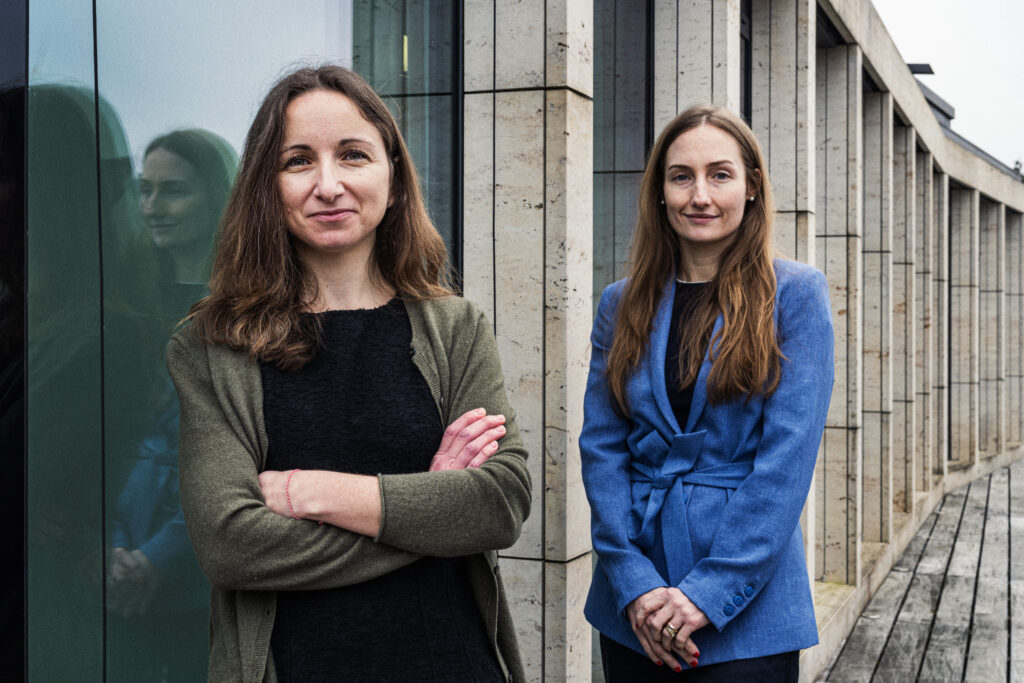Present at the Davos conference in January 2025, Larry Fink advocated for the tokenisation of financial assets. For the chairman and CEO of BlackRock, issuing bonds or shares on DLT platforms “will democratise investing in ways we can’t imagine”. Coming from the Alpine massif in the heart of winter, this declaration resonated strongly within the Luxembourg financial centre. Indeed, a month earlier, the country’s National Parliament voted on the fourth law in five years, “Blockchain Law 4”, to create a secure legal environment for actors wishing to develop activities integrating digital assets.
By modifying the 2013 law on the dematerialisation of securities, this new regulation explicitly specifies that equities and fund shares can be processed on a blockchain. This step not only modernises Luxembourg’s legal framework but positions it at the forefront of next-generation fund infrastructure. “Blockchain Law 4 provides legal certainty to market players willing to launch a tokenised fund,” emphasise Boika Deleva and Anne-Lise Vandevoir, respectively Counsel – Banking, Finance and Capital Markets and Senior Associate – Investment Funds at Clifford Chance.

“Blockchain Law 4 provides legal certainty to market players willing to launch a tokenised fund.”

For Georges Bock, Founder and CEO of Investre, a Luxembourg fintech aiming to develop investment in the fund sector using DLT, “this vote is crucial. In a financial centre managing over €7 trillion in investment funds, opening the door to this new technology designed for capital market infrastructure is obvious.” According to his market perception, the tokenisation of funds is right now indeed at the heart of the sector’s major players’ thinking.
In Luxembourg, the first exploration was carried out by Franklin Templeton. At the end of October 2024, the American investment manager announced it had received approval from the CSSF, the national regulator, for launching the Franklin OnChain U.S. Government Money Fund, a UCITS fund tokenised on a public blockchain using internally developed technological capabilities. A first in Europe using proprietary technologies made possible by the Luxembourg legislation. “Blockchain offers a secure, transparent, and unchangeable method to record and verify transactions, reducing intermediaries and enhancing security,” comments Rafal Kwasny, Conducting Officer for Distribution, Marketing & TA at Franklin Templeton Luxembourg.
Traditional investment fund models are highly fragmented, with layers of intermediaries adding cost, delays, and opacity. Accenture and PwC have documented the inefficiencies in today’s asset servicing value chain, from reconciliation frictions to lack of real-time ownership transparency. Tokenisation addresses these challenges head-on.

"Blockchain offers a secure, transparent, and unchangeable method to record and verify transactions."

Cost Reduction, Transparency, and Liquidity
“My personal bet is that within three years, two-thirds of new alternative fund issuances will be on blockchain,” continues Bock. Among the potential main advantages, he first points to cost reduction through simplification. “Currently, between the fund manager and the distributing bank, we observe a series of intermediaries working in silos with their own data. The Blockchain Law 4 creates the control agent function. They will be responsible for maintaining the register, but will orchestrate the origination of records between the issuer, the alternative investment fund manager and the investors or their account keepers. Once all parties have confirmed transaction details, the control agent will generate the registration of the single legal binding record of ownership, a so called Golden Record, in the blockchain network. “

“My personal bet is that within three years, two-thirds of new alternative fund issuances will be on blockchain.”
When the register is hosted on a blockchain, it becomes visible to all participants. The asset manager can finally obtain information about their clients, with consent, information previously obscured by various intermediaries. “The chain becomes transparent. The company can now analyse investor behaviour and better personalise its offer, and the investor will have a better view of the product in which they are investing,” analyses Olivier Portenseigne, CEO of FundsDLT, a company based in Luxembourg and owned by Deutsche Börse, which developed a DLT based platform faciliting fund distribution.
Fragmenting a fund into tokens also opens the way to greater accessibility in fund investment, as suggested by Larry Fink. This is already largely the case for UCITS funds, but it opens up wide possibilities in the alternative fund sector where the rules have closed access to retail investors: very high initial investment amounts, closed-end structures, and capital locked up for several years. Representing the same investment through multiple fractional tokens and the ability to resell them on a secondary market will create the liquidity that retail investors seek and will clearly change the functioning of this segment. An opportunity for Luxembourg, where AIFs now represent a third of assets under management.
The transfer of operations to a DLT also significantly reduces the time for transaction settlement – transitioning from T+2 to T+0 – and the use of smart contracts allows for automatic execution of certain transactions. “Tokenisation also opens the way to new distribution channels favoured by younger generations. Currently, they buy crypto rather than invest in funds because the process is simpler,” observes Portenseigne.

“Tokenisation also opens the way to new distribution channels favoured by younger generations.”

One barrier to adoption is the confusion between tokenised securities and cryptocurrencies. Industry voices such as Fidelity Digital Assets have been clear: fund tokenisation is not about speculative assets, but about improving operational efficiency and enabling financial inclusion through institutional-grade infrastructure.
Luxembourg Wants to Remain a Pioneer
Laurent Marochini, CEO of Standard Chartered Luxembourg which opened an office in the country in December 2024 with the explicit aim of developing crypto custodian activities, noted that the fund tokenisation wave is in the process of arriving in Europe and that the first movers will likely be the biggest beneficiaries. “The legislative arsenal put in place by Luxembourg ensures a true competitive advantage. Now we must transform theoretical advantages into real benefits. As soon as a few major players take the leap of launching new funds on a DLT, this new segment should grow rapidly. It’s happening already in US and Asia where Standard Chartered has recently tokenized a Money Market retail fund in Hong Kong.”
Authorising the processing of dematerialised equities on DLTs without sidelining traditional structures, Blockchain Law 4 also proposes innovations in the operational model. As previously mentioned, it creates the “control agent” function, which can be performed by credit institutions, investment firms (particularly transfer agents), or clearing organisations established in Luxembourg or a European Union member state. According to the new legislation, they will use DLT to fulfil three optional functions: maintaining the securities issuance account, monitoring the custody chain of securities, and reconciling issued securities. Using a control agent for the issuance of dematerialised securities thus eliminates the two-tier holding chain that currently exists between a central account keeper, being a key service provider for issuing dematerialised securities, and second-level custodians.

“The legislative arsenal put in place by Luxembourg ensures a true competitive advantage.”

“The use of a control agent allows for the activities currently performed by the central account keeper to be separated”, state Boika Deleva and Anne-Lise Vandevoir, “providing for an alternative structure for the issuance of dematerialised securities. There is now a clear separation between the ‘issuance process’ and the ‘custody services’. The control agent focuses on the former, by maintaining the securities issuance account and facilitating securities issuance and reconciliation, while the custody activities remain assured by traditional providers.” For this purpose, contractual and operational relationships will need to be established between the control agent and depositary banks as well as other existing custodians.
As the leading European investment fund centre, Luxembourg has taken the initiative to rapidly evolve its legislation to ensure legal security for actors wishing to launch tokenised funds via DLT. The ground is prepared, but adherence to this new investment segment will likely take some time. “Success will come through educating operators and investors for whom this revolutionary technology might seem riskier or be confused with cryptocurrency operations,” admits Rafal Kwasny. “Banks, distributors, and financial intermediaries will also need to integrate their systems with this technology, which may take time and require investments.” But in the medium term, everyone should perceive the advantages.
The next 24 months will likely determine the leaders of this emerging sector. Institutions that embrace tokenisation early, experiment with use cases, and engage with regulators will define the standards of tomorrow.

